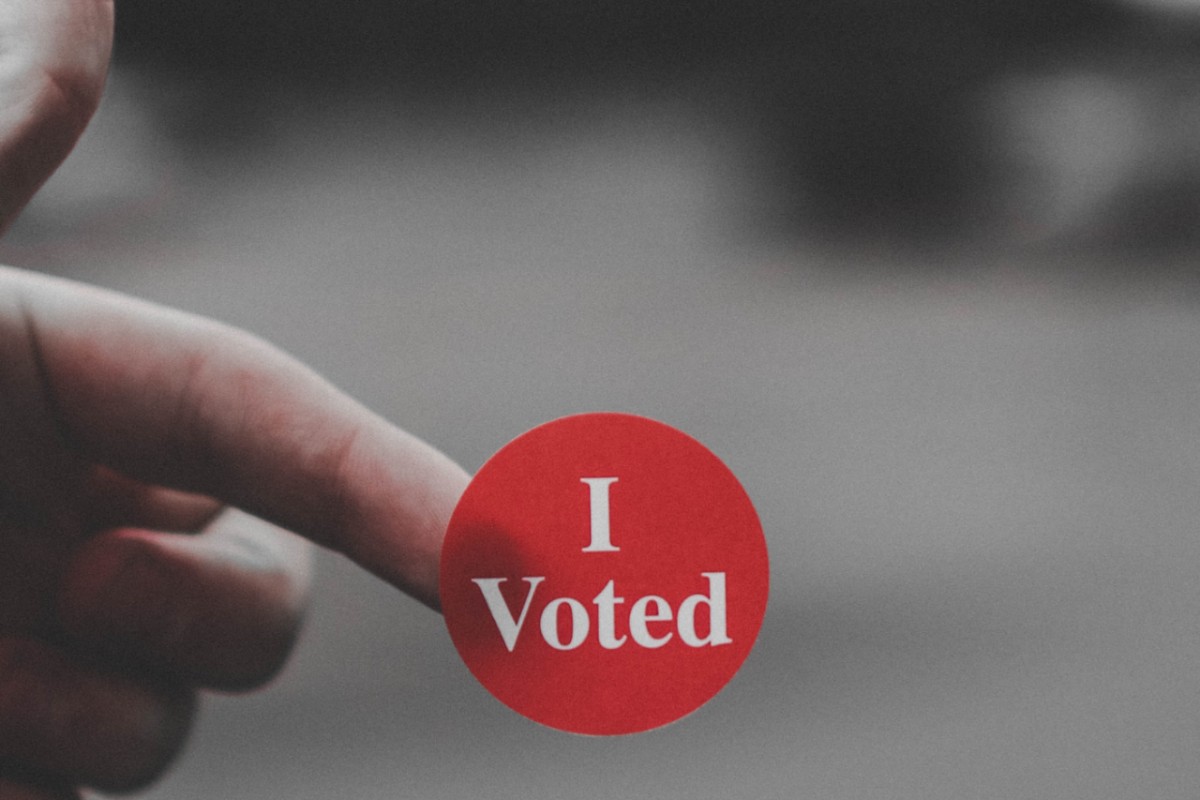INSIDE ISSUE 19.36 | Sept. 4, 2020
 BIG STORY: Legislature poised to study how utilities meet energy needs
BIG STORY: Legislature poised to study how utilities meet energy needs
NEWS BRIEFS: State revenues to look similar to 2018-19 levels
COMMENTARY, Brack: A 2020 guide for protecting democracy
SPOTLIGHT: Charter Communications
ANOTHER VIEW, Fulton: Press, governor have failed us on COVID crisis
FEEDBACK: Send us your thoughts
MYSTERY PHOTO: Breaking a sweat
HISTORY: Pre-order new book of 350 historical facts
Legislature poised to study how utilities meet energy needs

By Lindsay Street, Statehouse correspondent | What if South Carolina could lower residential and commercial utility bills, close more coal plants and see more investment in renewable energy?

“A lot of people think that the only way to deal with climate change and reduce emissions is having the government act, but actually setting up a competitive market might get us there faster with significant savings and job benefits,” Coastal Conservation League Energy and Climate Program Director Eddy Moore said. “It’s not just a theoretical idea. It’s been done in other parts of the country.”
Utilities across the southeast, including South Carolina, operate as vertical monopolies in which they produce and transmit their own power to customers in a specified geographic territory. But a new study by Energy Innovation: Policy and Technology LLC, a nonpartisan energy and environmental policy firm in San Francisco, found that if the energy market is altered through public policy to create energy production competition, then utility customers would experience 23 percent lower utility bills as well as the quicker spread of renewable energy and as many as 285,000 new southeastern jobs over the next 20 years.
To reap those benefits, the energy market in the region would have to change to how two-thirds of the United States already gets its energy: by becoming a regional transmission organization (RTO). That’s where a public regional authority coordinates energy sales from energy producers based on a utility’s customers’ needs.
“(The report) confirms what you’d expect intuitively: If you’ve got competition among power producers, that’s going to benefit consumers,” said Beaufort Republican Sen. Tom Davis, a proponent of RTOs and the lead sponsor of 2019’s Energy Freedom Act, which allowed independent renewable energy producers to sell to utilities.
The report was published ahead of the legislature preparing to convene Sept. 15 to address the state spending plan and take up select bills that have passed one chamber. One of the bills that could be taken up is the creation of a committee to study the creation of an RTO.
While it may be a heavy lift with all eyes focused on the budget and pandemic response, RTO advocates say now is the time to greenlight the legislature’s study committee.
“Taking steps to reduce waste in the economy and to open it up to new technology and jobs, that can only help us in the COVID situation, and then with respect to climate we’re talking about doing something that will help the climate problem and save money at the same time,” Moore said. “We need to start taking that first step so we get there.”
‘Squeeze a lot of fat out’
The August Energy Innovation study, titled “Economic and Clean Energy Benefits of Establishing a Southeast U.S. Competitive Wholesale Electricity Market,” found that electricity rates would lower 23 percent over the next 20 years under an RTO model versus the existing model. And because inefficient power plants such as coal would be economically unviable, they would retire and reduce carbon pollution by up to 37 percent.
Other findings for the region, which includes Alabama, Florida, Georgia, Mississippi, North Carolina, South Carolina, and Tennessee, include:
- $384 billion in cumulative economic savings through 2040;
- An additional 285,000 new jobs in the sector versus 122,000 new jobs under the current model by 2040;
- Bigger investments in solar, wind and battery storage; and,
- All coal and most natural gas plants for peak use retired by 2040.
“It would squeeze a lot of fat out of the system,” Moore said.
In March, Duke University published a similar study with similar findings.
“We’ve had this monopoly system for almost 100 years, since we brought electricity to the rural areas of the state … You can’t just flip a switch,” Davis said, adding that understanding the impacts will be necessary. “It’s going to take a while to move us to where we are to where we should be.”
To begin the process, advocates say there needs to be a study committee authorized by the legislature.
The push to approve in September
The House voted 81-31 in February to pass H. 4940, a bill creating a state committee to study implementing an RTO. That was just weeks before the legislature went on recess as the state shut down for the pandemic, and the bill has remained in a Senate Judiciary subcommittee since then.

The committee would explore stakeholders’ issues and the “how” behind implementing an RTO, Davis said. It has a deadline of returning its findings to the legislature by Jan. 12.
“There’s a good chance of getting that bill pulled out of committee and put on the full calendar (in September),” Davis said.
For the Senate to take up a vote on H. 4940, there would need to be unanimous consent by senators.
“It’s not something that would take up a lot of debate. It could be done relatively quickly. It’s important to take it up in September,” Davis said.
But H. 4940 hit opposition on the House floor. Democratic Rep. Annie McDaniel of Winnsboro was among the 31 votes against it.
“I am not a proponent of always hiring consultants to come in and do studies,” she said, adding she was also worried about rural homes getting lost amid regionalization of power. “When you start regionalizing, it’s the rural people, the people who don’t have the money who lose out.”
Murrells Inlet Republican Sen. Stephen Goldfinch is on the Senate panel studying the bill.
“There’s very little harm in passing a study bill; what comes after it is the question,” Goldfinch said, adding he was more interested in private utilities setting up voluntary changes in the market.
Voluntary market exchange in the works
Utilities in the Southeast announced this summer they are exploring a centralized energy exchange that would be called the Southeast Energy Exchange Market (SEEM), according to Dominion Energy. The exchange would be voluntary and would meet energy demand nearly simultaneously across utilities.
“This proposal is the first of its kind in our region and is a low-cost, low-risk way to provide immediate customer benefits through a shared market structure,” Duke Energy spokesman Ryan Mosier said.
Companies exploring the energy exchange market in South Carolina include Duke Energy Carolinas, Duke Energy Progress, Dominion Energy South Carolina and Santee Cooper.
“SEEM would create immediate benefits for customers through a shared market structure,” Dominion Energy public affairs manager Rhonda O’Banion said.
But the voluntary market is not exactly an RTO, which can also be implemented alongside such a proposal.
RTO proponents have expressed concerns about transparency and pricing in such a system. In a July 30 column for Utility Dive, RTO attorney Steven Shparber said that while SEEM could reduce the cost of wholesale electricity, it may not decrease utilities’ capital projects or provide “substantial benefits to customers and renewable resources.”
“The existence of the SEEM proposal should not stop the discussion currently taking place related to wholesale power market reform in the Southeast — and particularly in the Carolinas — as SEEM does not appear likely to significantly reduce customers’ bills or help to integrate renewables compared to other options that are available and which should be explored in more depth,” Shparber wrote.
- Have a comment? Send to: feedback@statehousereport.com
State revenues to look similar to 2018-2019 levels

By Lindsay Street, Statehouse correspondent | South Carolina state revenue forecasters predicted Aug. 31 that the state’s income for the current fiscal year will shrink by 3 percent from 2019-2020 levels.
The Board of Economic Advisers met Monday to discuss what the 2020-2021 year, which began July 1, will look like for the state. Lawmakers this week started drafting a later-than-usual budget amid the coronavirus pandemic in the Senate Finance Committee.
Gross general fund revenue was $9.793 billion for the 2019-2020 fiscal year. State revenue forecasters say 2020-2021 could see gross general fund revenue at $9.5 billion — a 3 percent decrease in the budget, or $293 million. That puts spending potential at about the 2018-2019 spending levels.
Among revenues expected to fall:
- Corporation income tax, by 11.2 percent;
- Corporation license tax, by 18.1 percent; and,
- Earned on investments, by 42.7 percent.
- Related: House Ways and Means to meet Sept. 11 on budget. Frank Rainwater, executive director of Revenue and Fiscal Affairs, will speak to the House Ways and Means Committee Sept. 11. The agenda has not yet been posted.
In other recent news:
![]() State agency surpluses grow. State Comptroller General Richard Eckstrom has reported $623.5 million in total general-fund surpluses among state agencies and several major state accounts at the end of fiscal 2019-20. Read more.
State agency surpluses grow. State Comptroller General Richard Eckstrom has reported $623.5 million in total general-fund surpluses among state agencies and several major state accounts at the end of fiscal 2019-20. Read more.
State to be paid $600M in deal to remove plutonium. Officials with the U.S. Department of Energy signed a $600 million settlement with South Carolina this week over storage of plutonium at a former nuclear weapons plant near Aiken. Read more.
Senate approves no-excuse absentee voting. State senators approved Wednesday a measure that will allow all state voters to cast absentee ballots because of the COVID-19 pandemic. The bill passed unanimously but the ballots will still have to be mailed or dropped off at voting offices. The House now must pass the bill before it heads to the governor’s desk. The House is expected to take up the bill later in the month.
House panel to talk flood buyout program. The House Ways and Means’ Economic Development Legislative subcommittee convenes 10:30 a.m. Sept. 8 virtually to discuss Senate Bill 259, establishing the South Carolina Resilience Revolving Fund. The bill passed the Senate March 20. Last week, lead sponsor Murrells Inlet Republican Sen. Stephen Goldfinch told Statehouse Report that House members should act since flooding presents a big and recurring economic problem in the state. See agenda here.
Governors’ political party biggest indicator of statewide mask mandate. A study found that a governor’s political party was the biggest determinant of whether a state imposed a mask mandate between early April and mid-August in response to the coronavirus pandemic with Republican governors most likely to resist statewide mandates. A governor’s political party was a better determinant of a state’s mask mandate more so that a state’s number of coronavirus infections or deaths linked to the disease caused by the virus, according to the report. Read more.
-
- Related: DHEC to release school COVID cases twice weekly. The S.C. Department of Environmental Control announced this week that it will give school-by-school updates on positive coronavirus cases on Tuesdays and Fridays. The twice-weekly reports begin today. Read more.
House ad hoc committee on CARES Act meets Sept. 9. The House Ways and Means’ CARES Act Ad Hoc Committee will meet virtually 2 p.m. Sept. 9 to discuss how the state is spending federal coronavirus aid money and what other needs it has. See agenda here.
Clock ticking on getting counted. The 2020 Census is facing unprecedented challenges in counting people — some of whom have been displaced in the pandemic and other natural disasters. The count is set to end Sept. 30. Then, the Census Bureau has three months to process the nation’s information before completing its report, meaning some quality checks could be trimmed or tossed out. Read more. Haven’t completed the census yet? Or want to share the link with others? Click here.
Internet mapping effort underway. In the effort to expand internet connectivity in the state, the S.C, Office of Regulatory Staff (ORS) has requested all broadband service providers and broadband infrastructure owners operating in South Carolina to submit data and information on the availability of broadband service at delivered download and upload speeds and by technology type for each address in the state serviceable by the broadband service provider or infrastructure owner. Information will be used to accurately map internet connections in the state. It is due to the ORS by Sept. 25. Maps of internet connections in South Carolina have been a part of the Palmetto Care Connections in 2019, and are available here.
- Have a comment? Send to: feedback@statehousereport.com
A 2020 guide for protecting democracy

By Andy Brack, editor and publisher | The founders of America’s experiment in democracy rebelled against monarchical rule from England because they wanted to do things their own way. They set up a map on how to govern, the U.S. Constitution, that’s become the envy of the world.
 Now there’s a president in the White House who seems to view the constitution as a guideline, at best, that can be bent to his personal preferences. And an entire political party has changed, part in fear of retribution and part in the craving need to keep power, to enable the rusting of our democracy’s foundation.
Now there’s a president in the White House who seems to view the constitution as a guideline, at best, that can be bent to his personal preferences. And an entire political party has changed, part in fear of retribution and part in the craving need to keep power, to enable the rusting of our democracy’s foundation.
If we don’t watch it in November, the promise of America could become a nightmare for millions of people without privilege and who don’t look much like Ken or Barbie. That cannot happen.
Americans fought for the right to set their own rules through civil elections for a representative democracy, not authoritarian rule. To protect that, all Americans have an active responsibility to participate in democracy. To not participate is a slap in the face to patriots who created and sustained our system of governance. Now is the time to prepare for a sustained defense of the nation’s constitutional values, as conservative columnist David Brooks wrote this week in The New York Times:
“The process of mobilizing for an accurate election outcome, before it is too late, would be a struggle to preserve the order of our civic structure against the myriad foes who talk blithely about tearing down systems, disorder and disruption. It may be how we rediscover our nation again. It’s time to start thinking about what you would do.”
So here’s a guide on how to protect America’s democracy as the presidential campaign zooms for the finish line in two months:
Register to vote. Hundreds of thousands of South Carolinians are not registered to vote. If you’re not, you can’t participate in the process and have your say, one way or another. What are you waiting for? You can register online through Oct. 4 at SCVotes.gov.
Work at the polls. Thanks to the pandemic, county election officials are shorthanded. They need poll workers and managers for election day. The job doesn’t pay much, but it’s a way to keep lines moving and promote an orderly voting process. If you want to work on election day, contact your county election office.
Be a truth-checker. With the Russians and others again actively working to create havoc in the elections, be a truth-checker about what you read. Make sure you use a trusted source, not just believe what you read on social media or see on television. If something sounds incredulous, it just might be, so find another source or two to confirm what you read. There are no such things as “alternative facts.” Facts are facts. Make sure what you read is true before you believe and act on it. A good resource: PolitiFact, a nonprofit website curated by Pulitzer Prize-winning journalists.
Vote. The S.C. Senate this week approved a bill for no-excuse absentee voting to give people worried about coronavirus a chance to cast a ballot early in person, by dropping it off early or by mailing it. Members of the S.C. House should pass the bill as soon as possible. The deadline to apply for a mail-in ballot is Oct. 30, but you should do it much earlier to make sure you get the ballot and can return it by election day. If you don’t want to vote absentee, you can vote in the traditional manner — in person at your precinct on election day. Learn more at SCVotes.gov.
Be patient. Based on what’s happened in recent elections, the outcome in the presidential and some state elections may be very close. Because states are expected to process millions of more ballots than usual because more people may vote absentee, results may not be final on election night. This creates the possibility that we may not know who wins for a few days, which could lead some to say they’re victorious when they actually won’t end up winning. Be patient. Let the system work. Let officials count all of the ballots. Then we need to be orderly in accepting the results and moving forward to make America’s democracy even stronger for all.
- Andy Brack is editor and publisher of Statehouse Report. His column also is published in the Charleston City Paper, Florence Morning News, Greenwood Index Journal, The (Seneca) Journal, Camden Chronicle Independent and Hartsville Messenger. Have a comment? Send to: feedback@statehousereport.com.
Charter Communications
 The public spiritedness of our underwriters allows us to bring Statehouse Report to you at no cost. Today, we’re happy to shine the spotlight on Charter Communications, the nation’s fastest-growing TV, internet and voice company. Committed to integrating the highest quality service with superior entertainment and communications products, Charter is at the intersection of technology and entertainment, facilitating essential communications that connect 24 million residential and business customers in 41 states, including South Carolina. In addition to being committed to giving back to the communities we serve, the bedrock of our business strategy is to serve our customers and exceed their expectations.
The public spiritedness of our underwriters allows us to bring Statehouse Report to you at no cost. Today, we’re happy to shine the spotlight on Charter Communications, the nation’s fastest-growing TV, internet and voice company. Committed to integrating the highest quality service with superior entertainment and communications products, Charter is at the intersection of technology and entertainment, facilitating essential communications that connect 24 million residential and business customers in 41 states, including South Carolina. In addition to being committed to giving back to the communities we serve, the bedrock of our business strategy is to serve our customers and exceed their expectations.
“We, at our core, are a service organization,” President and CEO Tom Rutledge says. “And every product we sell has a huge service component.”
- To learn more, visit Charter’s South Carolina services online.
Press, governor have failed us on COVID crisis

By Dr. Gere B. Fulton, special to Statehouse Report | It has now been nearly seven months since the state Department of Health and Environmental Control (DHEC) announced the first two cases of COVID-19 in South Carolina. That was on March 6.
By the middle of March, Gov. Henry McMaster had begun the “closing down” of athletics, schools and businesses, and ordered all non-essential state workers to stay home. Public colleges and universities were directed to finish their semesters online. The first two deaths were reported on March 20.
On April 21, McMaster announced plans to allow retail stores to reopen. That was the beginning of his failed leadership which has now resulted in 118,116 cases and 2,626 deaths. He decided to ignore the advice of his own public health experts, the World Health Organization and even the president’s own Task Force by opening when the number of cases was still rising and the testing, while insufficient, was showing positivity rates well above the 5 percent recommended as the minimum for reopening. We are all feeling the effect of the virus on our day-to-day lives.
The media, especially newspapers like The State, have done an inadequate job in educating the public about the management of the disease. They report daily on the number of cases, but they seldom link that to the number of tests upon which those cases are based. Without knowing the latter, it is impossible to know whether the former represent an increase or a decrease in the management of the disease. Tests are done to find the number of infections, but the less you test, the lower the number.
Lindsay Street has recently reported (Statehouse Report, 8/28/20) that Sen. Tom Davis (R-Beaufort) has emailed DHEC reiterating that the Senate wants 10 percent of the population tested monthly. That would be approximately 514,900 tests. The state is currently doing approximately 13,000, far short of the number to give us a reasonable assessment of risk. It has been estimated that there are eight to nine unreported cases for every one that is discovered.
The health professionals at DHEC seem to understand this. McMaster’s epidemiologist, Dr. Linda Bell, has been making the scientific case from the beginning, but the governor has both ignored and misrepresented her recommendations.
McMaster made his first mistake on April 15, when he decided to “reopen” businesses while the number of cases was growing and the positivity rates were too high. The shutdown soon followed and we have been paying the price for that decision ever since.
Now he’s repeating that mistake and bullying the schools to open with face-to-face teaching while the disease is raging all around them. We are already seeing the failure in that. If he were the CEO of a corporation, his board of directors would have fired him months ago.
And speaking of directors, where has the legislature been? Yes, I know it hasn’t been in session, but why hasn’t it been called back to Columbia to provide oversight on the governor. This is, after all, a matter of life and death. People are sickening and dying because of his failures and he has shown no indication of changing course. He is stubbornly dedicated to “opening the economy,” but those attempts will also fail until we gain control of the virus.
There is proof that masking, along with social distancing, testing and contact tracing works. But the governor has steadfastly refused to direct statewide masking and has agreed that restaurants could have twice the percentage of diners as recommended by all of the guidelines. The number of tests have been inadequate and contact tracing is only as effective as the testing regimen. Where are our legislators and why have they not been speaking out on this and holding him accountable?
The press should also be calling for accountability and stop misleading the public by dwelling on the number of cases without linking that to the number of tests. They too should be calling out the governor for his many failures.
Unless and until these changes take place, our hopes and visions of the good old days will remain illusory.
Gere B. Fulton is a retired public health professor with a Ph.D. from the University of Maryland and a J.D. from the University of Toledo. He most recently taught law and ethics of end-of-life care at the University of South Carolina School of Medicine.
Send us your thoughts
We love hearing from our readers and encourage you to share your opinions. But to be published, you’ve got to provide us with contact information so we can verify your letters. Letters to the editor are published weekly. We reserve the right to edit for length and clarity. Comments are limited to 250 words or less. Please include your name and contact information.
- Send your letters or comments to: feedback@statehousereport.com
Breaking a sweat

Here are some runners plodding down a street. But where? Send to feedback@statehousereport.com. And don’t forget to include your name and the town in which you live.
Our previous Mystery Photo
 Our Aug. 28 photo, “Mystery painting,” is the “Elusive Francis Marion” mural in Summerton, several readers told us. Correct! “It’s on the side of a school district building on South Church Street,” wrote reader C.D. Rhodes of Columbia. “It is part of the excellent Swamp Fox Murals Trail through Clarendon County.” Thanks to reader Randy Herald of Lexington for sending the photo.
Our Aug. 28 photo, “Mystery painting,” is the “Elusive Francis Marion” mural in Summerton, several readers told us. Correct! “It’s on the side of a school district building on South Church Street,” wrote reader C.D. Rhodes of Columbia. “It is part of the excellent Swamp Fox Murals Trail through Clarendon County.” Thanks to reader Randy Herald of Lexington for sending the photo.
Also correctly identifying the mural were: George Graf of Palmyra, Va.; David Lupo of Mount Pleasant; Philip Cromer of Beaufort; Brad Hutto of Orangeburg; Debbie Causey of North Myrtle Beach; Frank Bouknight of Summerville; Allan Peel of San Antonio, Texas; Jacie Godfrey of Florence; Jay Altman of Columbia; Dale Rhodes of Richmond, Va.; and Bill Segars of Hartsville.
Lupo added, “This is one of a series of Swamp Fox murals painted by Terry Smith of Land O’Lakes, Fla., starting in 2005. ‘Elusive Francis Marion’ was completed in 2016 in Summerton,, where it can be seen along U.S. Highway 15-301.”
Send us a mystery: If you have a photo that you believe will stump readers, send it along (but make sure to tell us what it is because it may stump us too!) Send to: feedback@statehousereport.com and mark it as a photo submission. Thanks.
Pre-order your copy today
 Copies of a new book of historical facts about Charleston, aptly titled 350 Facts About Charleston, will be in Lowcountry-area bookstores in the next two weeks, but you can pre-order a copy today.
Copies of a new book of historical facts about Charleston, aptly titled 350 Facts About Charleston, will be in Lowcountry-area bookstores in the next two weeks, but you can pre-order a copy today.
The staff at our sister publication, the Charleston City Paper, pulled together fun and arcane information about the Holy City to illuminate its deep, rich history from its founding in 1670 until this year. (That’s, umm, 350 years!)
Included in the 224-page book are details on early settlers, the wars (Revolutionary and Civil) and the struggle for civil rights by descendants of enslaved Africans. You’ll learn about food (Charlestonians have loved to drink wine for centuries), books, people, music, culture and much more.
Bonus: Talented South Carolina cartoonist Robert Ariail offers 12 illustrations that should make a great calendar someday.
- Preview the book by visiting CharlestonFacts.com.
ABOUT STATEHOUSE REPORT
Statehouse Report, founded in 2001 as a weekly legislative forecast that informs readers about what is going to happen in South Carolina politics and policy, is provided to you at no charge every Friday.
Meet our team
- Editor and publisher: Andy Brack, 843.670.3996
- Statehouse correspondent: Lindsay Street
Donate today
We’re proud to offer Statehouse Report for free. For more than a dozen years, we’ve been the go-to place for insightful independent policy and political news and views in the Palmetto State. And we love it as much as you do.
But now, we can use your help. If you’ve been thinking of contributing to Statehouse Report over the years, now would be a great time to contribute as we deal with the crisis. In advance, thank you.
Buy the book
Now you can get a copy of editor and publisher Andy Brack’s We Can Do Better, South Carolina! ($14.99) as a paperback or as a Kindle book ($7.99). . The book of essays offers incisive commentaries by editor and publisher Andy Brack on the American South, the common good, vexing problems for the Palmetto State and interesting South Carolina leaders.
More
Mailing address: Send inquiries by mail to: 1316 Rutledge Ave., Charleston, SC 29403
Subscriptions are free: Click to subscribe.
We hope you’ll keep receiving the great news and information from Statehouse Report, but if you need to unsubscribe, go to the bottom of the weekly email issue and follow the instructions.
Read our sister publications: Charleston City Paper (every Wednesday) | Charleston Currents (every Monday).
© 2020, Statehouse Report, a publication of City Paper Publishing, LLC. All rights reserved.



Pingback: New for 9/4: Energy needs; State revenues; Protecting democracy - Statehouse Report - RocketNews